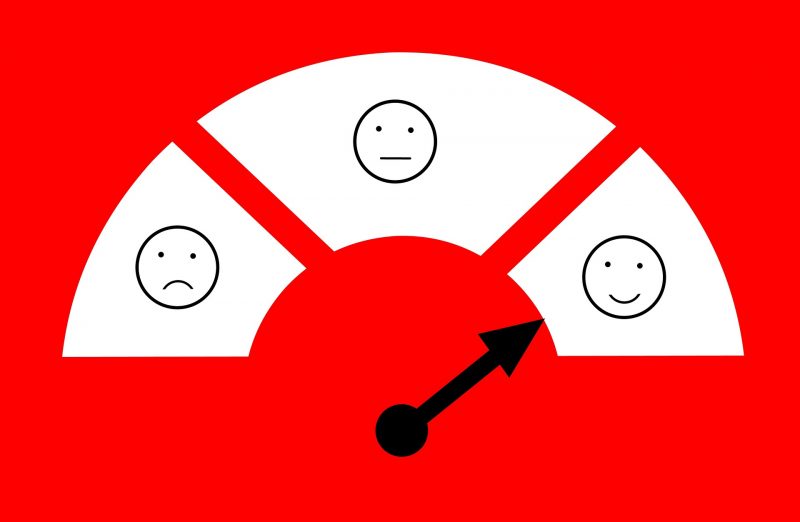
When you don’t get on with your thesis supervisor…
Reading time: 7 mins.
Now that the dust has settled since graduation and the class of 2019 is on to bigger and better things, I thought I’d write a few more blogs that share what we’ve learned throughout our time here, as well as some more tips on how to navigate aspects of your time here at KI. This advice is for those starting the MSc and about to embark on that most exclusive of relationships: the student-supervisor relationship. We were told it is a very important part of the degree project. Some might say your supervisor can make or break your thesis. I would also like to add that this blog is also for those considering KI. Apart from the prestige of an university, it’s important to look at the peripherals such as student support, which are no less important.
I’ll be talking through the potential different situations that can arise with a supervisor and what help and advice is out there. Of course, most of the time students don’t experience what I’ve written below, but have a supportive, approachable and engaging supervisor that takes an active interest in your work. They appreciate the fact that your work is an extension of theirs and almost see your final product as a reflection on them and want you to produce the best work you can.

Culture clash
The first thing to mention is that KI is an international university and with that comes an international cohort of researchers that will be one or more of your supervisors. A lot of us would pride ourselves on being culturally aware and sensitive. Despite the different cultural backgrounds of the supervisors, there is an intriguing melange of the sometimes adopted Swedish work culture with flashes of their own culture. Somehow, the quick intensity and invested emotion, blood, sweat and on occasion tears, means that this relationship can almost resemble an arranged marriage. As with any union, it’s not plain sailing all of the time. Some can be extremely stormy. I mean, can giving a Christmas card be construed as overstepping the professional boundaries of the working relationship in Sweden? Would e-mails being sent over the weekend be considered a blatant disregard for the hallowed work-life balance? Do you use their title and how deferential (if at all) should you be?
I would say, go with an open mind and be prepared to be flexible. Be polite and be guided by the feedback you receive from the other person. Above all remain professional and if you’re not sure just ask.
Communication
In some sad instances supervisors were extremely rude towards students and demanding things beyond what was required without ascertaining a student’s opinions, experience and expectations. Many may come from a culture where this power dynamic is the norm and a difficult aspect to overcome in allowing you to stand up for yourself when you should. Under no circumstances should you be chastised, verbally abused or belittled. We all have something to offer and above all, we should all be treated with respect. Surely, if these modicums of human decorum aren’t followed here, where we are aiming to better the human condition, then where else?

Sometimes, English is neither person’s first language and this awkward dance of euphemisms can ensue with everyone trying to adopt the common culture, that is the Swedish work culture which we all found ourselves in despite the fact that neither might be an expert in it and usually one, the student, doesn’t really know what is or isn’t acceptable all the time. Funny situations can arise, where simple misunderstandings around the use of a word which can mean something completely different in another country. Take the word, “period”, for instance. In the UK it’s the colloquial term for menstruation, in the US it means a full stop. That is easily cleared up. A problem can come when there is a difference in opinion on say, which qualitative methodology to proceed with (grounded theory versus thematic analysis) and what can be seen as a polite rebuttal of a senior’s suggestion can be interpreted as blatant disrespect for their experience and standing in their field.
Different opinions
On occasion students and their supervisors have different visions for their theses. The problem can be the fact that the supervisors’ way isn’t the desired way and vice versa or how this difference in opinion is communicated. The main recurring issue appeared to be how these opinions were communicated and this seemed to be dictated by individuals’ backgrounds and expectations of this process. The blame of a stalemate can come from either side or both. Like anything, I always think there are three sides to every story – yours, mine and the truth. Which one is believed or stands the test of time can only be decided in hindsight.
Words of advice
I decided to scout around and ask what advice is available. Below are some useful tips on what to do if you find yourself in this situation. I truly hope you don’t.

What does a course leader say?
The advice that would be given varies and depends on when in the degree project process issues arise. If it’s very early on then a recommendation may very well be to change supervisor and project. The process of writing a master’s thesis is tough enough as it is, without getting along with your supervisor. If it’s later on and changing supervisor isn’t really an option, then definitely speak to the course leaders. Maybe there might be guidance on how to iron out some of the misunderstandings or help both student and supervisor to develop a working relationship by setting common goals.
The study counsellor
Essentially, if you don’t get along with your supervisor and aren’t sure how to handle the situation then get in touch with KI’s Public Health Sciences’ very own counsellor. The counsellor had plenty to say and all excellent advice. I’ve summarised it. If you’re not contemplating Global Health, not to worry all education programmes at KI have a study counsellor available to students to offer support and advise when different types of problems crop up. Everything is confidential!
These are the likely steps your student counsellor will take you through when facing problems during your thesis, or in fact any other time whilst at KI:
- Define the problem.
- Talk to your supervisor (or whomever it is the problem involves).
- Talk to your course leader.
- If things are no better after these steps then make another appointment with the student counsellor.
The final word
Canvasing the class for their experiences and opinions, the main difficulties were cultural barriers and communication. It can be unclear what is expected from us as students in terms of responsibility and also the supervisor. This is something that could have been made clearer from the beginning. However, we are all adults and many of us have returned to education from the world of work so negotiating challenging circumstances is not new to us. People can be coy and awkward when it comes to discussing certain things for fear of sounding entitled, take funding for example. One student suggested phrasing the question like this, “ Are there any funding sources available?” It’s direct and both parties know what’s going on. So, be clear about the type of support you’re likely to need and the kind of supervisor you’re looking for when scouting around and meeting with prospective supervisors. It’s not all about the project.

Another tip from a student was to have a mix of supervisors with experience in quantitative and qualitative research, as the different perspectives can be useful when issues arise.
Research teams are very fast and efficient, responding to all e-mails very quickly and getting almost all the required answered as fast as possible. Sometimes you wonder if they sleep!
Most supervisors guide their students and are excited at the prospect of seeing the growth in their student encouraged by the process. They are able with some time to let you expand your projects in directions they didn’t initially envisage but are secure enough in their knowledge and expertise to let it happen, without feeling threatened and lashing out as described above in retaliation.
I have got to say that the vast majority have positive experiences with their supervisors. Don’t let this put you off. This is a highly stressful time and I want to make sure the lessons learned this year are spelled out for those coming afterwards. Why repeat the same mistakes? We also can’t forget that we got to work on some pretty cool projects as will you when you begin here at KI!
Disclaimer: I must point out that all the experiences gathered here are from students old and new. Just in case my supervisor reads this blog, what has been written is no reflection on the experience I had.
E-mail: rahel-ochido.odonde@stud.ki.se
Related blogs:

0 comments